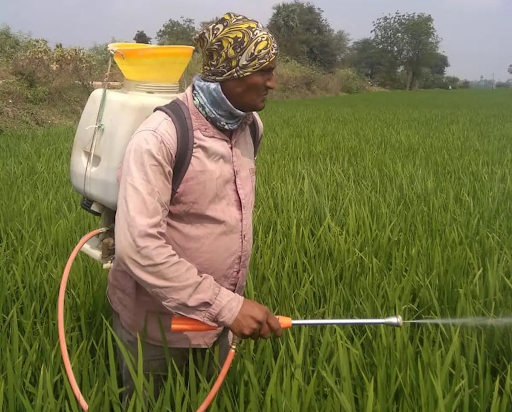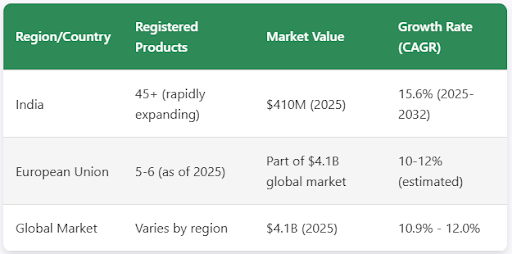



The Ministry of Agriculture registers 34 new biostimulants under the Fertiliser Control Order, boosting India’s agri-input sector. These substances enhance plant resilience against climate stresses, improving nutrient uptake and yields. With clear regulations, India aims to lead global biostimulant exports, fostering sustainable agriculture and addressing food security challenges.

Copyright infringement not intended
Picture Courtesy: THEHINDUBUSINESSLINE
Government registers 34 new biostimulants to boost agri-input manufacturing and exports.
Biostimulants are special substances that help plants grow better, even in tough conditions like drought or heat. Unlike traditional fertilizers, which directly provide nutrients like nitrogen or phosphorus, biostimulants enhance a plant’s ability to absorb nutrients already in the soil.
They make plants stronger against stresses like extreme weather or pests. They boost growth, improve crop quality, and increase yields without relying heavily on chemical inputs.
The Ministry of Agriculture and Farmers Welfare, regulates biostimulants under the Fertiliser Control Order (FCO) of 1985. This law ensures that only high-quality, effective products reach farmers.
The Ministry of Agriculture and Farmers Welfare issues a gazette notification, registering 34 new biostimulants under the FCO. This increases the total number of registered biostimulants in India to over 45. India registered its first 11 biostimulants in May 2024.
Major Categories Include:
The notification clarifies the rules for biostimulant compositions, categories, and labeling. It encourages more companies to enter the biostimulant market, boosting manufacturing and creating export opportunities.
Manufacturing Boost => The registration of these biostimulants is expected to boost manufacturing activities in India. More players are entering the market, create a competitive environment that drives innovation and quality improvements.
Export Potential => With India now having more registered biostimulants than the European Union, the country is positioned to become a major exporter in this sector. The regulatory clarity provides manufacturers with the confidence to scale up operations and explore international markets.

Climate Change Mitigation => These biostimulants are valuable for addressing climate change challenges, including both biotic and abiotic stresses. They improve nutrient uptake efficiency and provide plants with greater wellness to withstand environmental pressures.
Must Read Articles:
Index to Evaluate Climate-Smart Agriculture
Integrated Farming System: Sustainable Agriculture Practices
Source:
|
PRACTICE QUESTION Q. What role do biostimulants play in improving plant resilience under abiotic stress conditions? A) They increase soil pH levels directly. B) They enhance nutrient uptake efficiency and activate stress-responsive genes. C) They suppress photosynthesis to conserve energy. D) They replace fertilizers entirely in agriculture. Answer: B Explanation: Biostimulants enhance nutrient uptake efficiency and activate stress-responsive genes in plants. These compounds support root growth and improve the plant's ability to tolerate drought, salinity, and extreme temperatures. |






© 2026 iasgyan. All right reserved